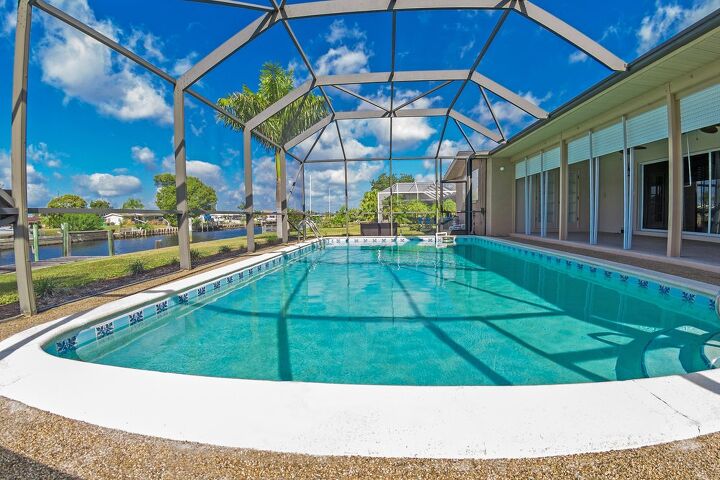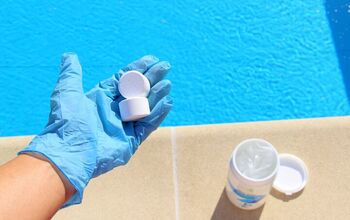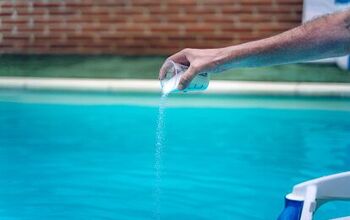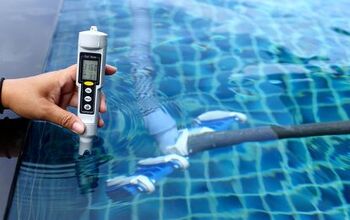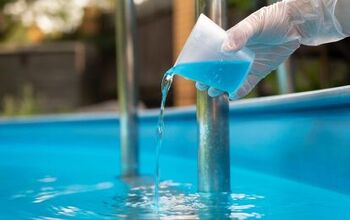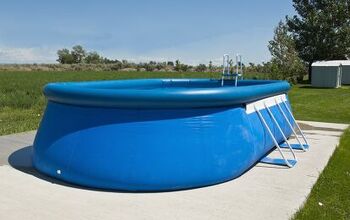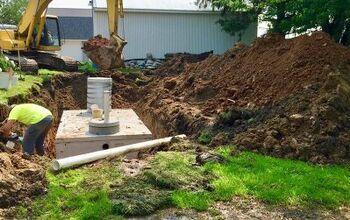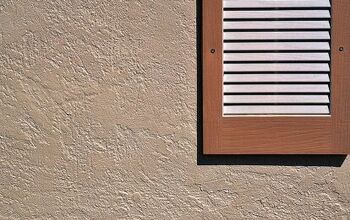Can You Convert A Saltwater Pool To Chlorine? (Find Out Now!)

In recent years, our society has been on a march towards the “chemicals are bad” style of life. Saltwater pools’ popularity are a sign of it, really. The thing is, saltwater pools are not exactly easy to care for. That’s why people like to have chlorine pools. Though rare, you’ll hear of saltwater pool owners who want to convert their gig into chlorine. Is that even a thing?
Technically, saltwater pools already have chlorine in them. The salt IS chlorine. However, if you want to go for the full fixture change, there is some good news. It’s actually easier to convert a saltwater pool back to a chlorine pool than it is to go the other way around.
Converting a pool from one type of sanitation to another is something you shouldn’t do lightly. It will cost a fair amount of money and may change how you do things. Here’s the scoop…
Do You a Need Pool, Spa, or Hot Tub Contractor?
Get free, zero-commitment quotes from pro contractors near you.

Why Would You Want To Convert A Saltwater Pool To Chlorine?
The biggest issue that people have with saltwater pools is the need to replace the saltwater cell. It’s a pricey thing to replace and most people just do not have the interest in keeping it up long-term. Converting it to chlorine will include more maintenance, but it’ll be way easier on the wallet.
Saltwater pools can also be a bit difficult to get used to, especially if you have had a traditional pool all your life. It’s easy to forget to maintain them. Besides, putting plants near saltwater pools can be limiting.
How Do You Convert A Saltwater Pool To Chlorine?
Honestly, it’s a long process that we are going to tell you not to try yourself. Since you would be working with a lot of chemicals and it can be hard to keep track of everything, we are going to insist that you get a pro for this. With that said, we’re going to go over the process superficially:
- You would have to shut off the pool pump and all electronic items. This will also be the time to put on your protective gear. You never want to be caught without it when you’re dealing with potential chemical exposure.
- Then, you would have to disconnect and remove the salt cell. Plumbing skills would be involved at this point. This is not something that we would want to suggest for newbies.
- Add piping where your salt cell would be. You will need to cut a fair amount of plumbing to match it up. Then, you would need to prime it with a waterproof glue. Like with all other types of pool plumbing, PVC is the correct type of piping for this.
- Drain out your pool. Most of the time, you could keep half the water in, but it’s often better to just redo everything.
- Refill your pool with fresh water. This can be done through your garden hose, through a special pool water plumbing fixture, or other methods. It’s up to you. Most people will still use a hose despite it taking several hours to do.
- Readjust your water’s sanitation levels. You will need to manually add chlorine and also shock your pool before you get in. Make sure to add conditioner if necessary and to balance out the pH. Turn on the pool pump once you’re done.
- Enjoy your new pool. It’s back to chlorine, again. Make sure to keep up with your maintenance schedule.
How Much Does It Cost To Convert A Saltwater Pool To Chlorine?
This procedure is generally going to be less expensive than it would be the other way around. However, prices still will vary on the size of the pool and any additional legwork that may be done. You should expect to pay between $500 to $1,500 to convert a saltwater pool back to chlorine.
Is Going Back To Chlorine A Good Idea For Everyone?
Absolutely not! Traditional chlorine pools require more maintenance than saltwater pools in most cases, which means that many people might find them to be a headache. Speaking of headaches, it’s also worth noting that there are tons of people who can’t stand the smell of chlorine.
When you first shock a chlorine pool, the smell can be heavy. In fact, it can even irritate the lungs of people who have sensitive airways. If you do not do well with chemical smells, then you might want to stick to saltwater. It might be more expensive, but you won’t be left gasping for air later on. After all, that’s why they are so popular. They’re gentle.
Do You a Need Pool, Spa, or Hot Tub Contractor?
Get free, zero-commitment quotes from pro contractors near you.

Related Questions
How much does it cost to convert a traditional pool to a saltwater pool?
If you want to turn a chlorine pool into a saltwater pool, you will need to spend around $500 to $2,500 to do it. Most pools, however, will require at least $1,500 of parts and labor to make them work. This alone is a reason why you should hit the pause button before you go back to chlorine. It’s a pricey decision to undo, so make sure you want to do it before you call the pros.
Are saltwater pools safer than traditional chlorine pools?
Saltwater pools are not much safer than traditional pools according to most major studies. They’re basically on par with one another. However, anecdotal evidence suggests that saltwater pools are going to be slightly more gentle on skin and hair. If you were worried about having your hair turn green, then getting a saltwater pool is a good way to make sure that it never happens.
Is there any chlorine in a saltwater pool?
If you were hoping to avoid chlorine by getting a saltwater pool, we have bad news for you. Saltwater pools are going to be chlorinated too. When salt breaks down in water, it turns into chlorine. This is just another, gentler way of sanitizing your pool via chlorine. Though there are ways to swim in a pool without chlorine, the truth is that most of the alternatives are not financially sensible or even really that different from chlorine.

Ossiana Tepfenhart is an expert writer, focusing on interior design and general home tips. Writing is her life, and it's what she does best. Her interests include art and real estate investments.
More by Ossiana Tepfenhart



